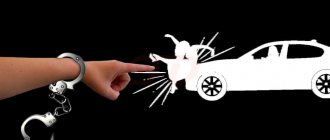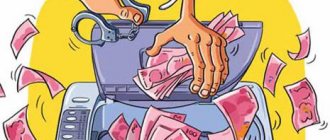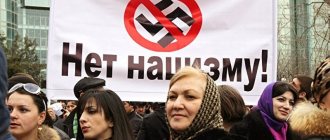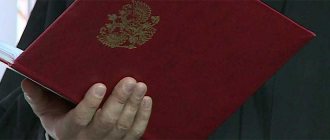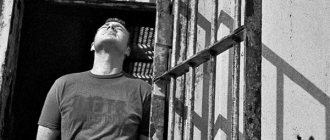Unfortunately, during criminal proceedings, mistakes are often made, due to which a subject not involved in the crime may suffer; Such mistakes can be made by interrogators, investigators, and courts. If this happens, persons brought to criminal liability by mistake, by virtue of Article 53 of the Constitution of the Russian Federation, have the right to count on compensation for damage caused by illegal actions (inaction) of government bodies or officials, that is, rehabilitation.
The main provisions regarding criminal rehabilitation are set out in Chapter 18 of the Code of Criminal Procedure of the Russian Federation. Thus, according to Article 133 of the Code of Criminal Procedure of the Russian Federation, the right to rehabilitation in criminal proceedings is granted to individuals in respect of whom:
- an acquittal was announced (excluding criminal cases of private prosecution);
- the prosecution ended due to the state prosecutor's refusal to charge;
- the prosecution ended due to the absence of an event or corpus delicti, the absence of a statement by the victim in criminal cases of private and private-public accusations, as well as in some other cases established by law;
- the conviction that entered into legal force was cancelled, including partially, and the criminal case was terminated due to the non-involvement of the convicted person in committing a crime or on other grounds established by law;
- when canceling an illegal or unfounded court order to apply compulsory medical measures.
Also, other individuals have the right to rehabilitation in respect of whom procedural coercive measures were illegally practiced (for example, there were illegal detentions, arrests, detention, etc.). Quite often, assistance in economic crimes is required for subjects acting, for example, as witnesses.
“Individuals who have escaped punishment due to an amnesty, expiration of the statute of limitations, not reaching the age of criminal responsibility, the inability to understand the nature of the crime and control their actions due to mental retardation, the adoption of a law that eliminates crime or the punishability of the act cannot count on rehabilitation.”
Rehabilitation in criminal proceedings: what does it include
A citizen who has become a victim of an error by the preliminary investigation or justice authorities has the right to count on:
- Compensation for property damage. The subject can recover from the state, for example, lost income, expenses for the services of a defense lawyer, court fines, the cost of destroyed property, etc. Therefore, in each case the amount may be different.
- Compensation for moral damage. When determining the amount of compensation, you should take into account the duration of the process, the type of sanction, as well as other important points. In addition to money, an employee of the prosecutor's office must apologize to the citizen on behalf of Russia. If information about the criminal case was covered in the media, then the same publication should contain a note about rehabilitation.
- Restoration of labor, property, pension and other powers. For example, someone illegally brought to criminal liability is subject to reinstatement in his previous position at his previous place of work, previously confiscated property is returned to him, his rank is restored, etc.
“A number of controversial issues regarding the use of rehabilitation in criminal proceedings are resolved by the courts in accordance with Resolution of the Plenum of the Supreme Court of the Russian Federation dated November 29, 2011 No. 17 “On the practice of application by courts of the norms of Chapter 18 of the Code of Criminal Procedure of the Russian Federation governing rehabilitation in criminal proceedings”
If a citizen wants to recover property damage, he should apply with the corresponding demand to the court that decided to terminate the criminal case (prosecution), or to the court at his own place of residence, or the location of the body that decided to terminate the criminal case or prosecution, which made the decision to illegal application of procedural coercive measures. This is allotted 3 years, which begin to be calculated from the moment the person learned about the violation of his rights. No later than 30 days, the judge decides on the issue of making payments.
What are the non-rehabilitative grounds for terminating a criminal case?
The list of non-rehabilitative grounds for termination of a criminal case is given in the Code of Criminal Procedure of the Russian Federation.
- Reconciliation of the parties. Allowed only in criminal cases of minor or moderate gravity, provided that the culprit has no criminal record and has made amends for the harm caused to the victim. In the practice of investigative and judicial authorities, this non-rehabilitative basis for terminating a criminal case is the most frequently used.
- Active repentance. This basis is used quite rarely. Also, as in the case of reconciliation of the parties, the accused should not have a criminal record, and the category of the crime he committed should not relate to serious or especially serious acts. In order to earn “active repentance,” the culprit must, through his active voluntary actions, contribute to the solution of the crime (turning himself in, actively assisting the investigation, compensation for damage, etc.)
- Expiration of the statute of limitations for criminal prosecution. These terms are prescribed in Article 78 of the Criminal Code of the Russian Federation and differ depending on the severity of the crime. For example, for theft committed with illegal entry into a home (clause “a” of Part 3 of Article 158 of the Russian Federation), the statute of limitations is 10 years, and for murder - 15 years from the date of the crime.
- Death of a suspect or accused. This basis applies only if the consent of close relatives of the deceased is obtained. If they consider the suspect or accused innocent, the investigation of the case must be continued and the final decision in this case will be made by the court after a full trial.
- Amnesty. This basis applies in cases where the state declares an amnesty every few years, i.e. “forgives sins” of accused and defendants in a certain category of cases.
In addition to the above, the legislation contains a number of other, “highly specialized” non-rehabilitative grounds for terminating a criminal case. For example, Article 28.1 of the Code of Criminal Procedure of the Russian Federation lists the conditions under which it is possible to terminate cases of tax crimes.
In all cases, the essence of non-rehabilitative grounds for terminating a criminal case is that it is established that a person has committed a crime, however, criminal punishment will not follow due to exemption from criminal liability for non-rehabilitative reasons (reconciliation, expiration of the statute of limitations, etc.) .
This is important: the citizen against whom a decision is made must be explained the grounds and consequences of terminating a criminal case on non-rehabilitative grounds. In addition, in a number of situations, for example, in the case of termination of a criminal case due to the death of the accused, the investigator is obliged to find out from close relatives of the deceased whether they agree to such a decision or insist on continuing the investigation and sending the criminal case to court
Who has the right to rehabilitation?
The list of persons who have this right is given in Article 133 of the Code of Criminal Procedure of the Russian Federation. If there are legal grounds, only the following categories of citizens can be rehabilitated:
- A defendant who was acquitted by the court.
- A defendant who was released because the prosecutor dropped the charges.
- A convicted person in respect of whom the sentence was fully or partially overturned, and the case was dismissed on the basis of paragraphs 1 and 2 of Article 27 of the Code of Criminal Procedure of the Russian Federation. Most often, this article is applied when a sentence is overturned because the convicted person was not involved in the crime.
- Sentenced to compulsory treatment if it is subsequently proven that the sentence was unlawful.
In addition, citizens who have not yet been convicted and are in the status of suspects and accused can be rehabilitated. They have the right to apply for rehabilitation on the following grounds:
- Absence of the events of the crime itself.
- No statement from the victim.
- Lack of corpus delicti in the actions of the accused.
- Lack of consent (documented in accordance with the law) of the authorized bodies to bring to justice. Such consent is necessary to hold deputies of the State Duma of the Russian Federation, the Federation Council and judges accountable.
- Absence of a court conclusion on the presence of a crime in the actions of the Prosecutor General or the Chairman of the Investigative Committee of the Russian Federation.
- Non-involvement in crime.
- The presence of a conviction or acquittal of a court on this charge.
- Resolution of the investigative authorities, investigator or prosecutor to discontinue a case on a similar charge in relation to a given offense.
- Refusal of the State Duma of the Russian Federation to give consent to deprive the President of the Russian Federation of immunity.
The legislation provides for compensation for harm suffered by a person due to his unlawful coercion in criminal proceedings.
Amount of payments to the rehabilitated
The criminal procedural legislation of the Russian Federation determines the grounds on which the amount of compensation payment is formed. The components of this amount include:
- Social benefits, pension or wages that the victim was deprived of due to criminal prosecution.
- Legal costs and fines paid by the convicted person following a court verdict that was subsequently overturned.
- Property confiscated by court order.
- Payment for attorney and legal services.
The court assesses the actual costs, so it is important to have documents confirming monetary payments and lost income.
What property damage must the state compensate?
Perhaps this question worries citizens who have received the right to rehabilitation most of all. According to current legislation, in particular Article 135 of the Code of Criminal Procedure of the Russian Federation, the state must compensate for the following losses:
- lost wages as a result of criminal prosecution. Of course, the state must reimburse wages based on the average earnings of the person being rehabilitated, but most often the calculation is made according to the minimum wage. At best, you can count on the average salary in the region;
- expenses for legal services, as a rule, are reimbursed to the last penny, of course, with the appropriate payment documents or other evidence;
- fines collected from a person during legal proceedings. This does not include fines imposed for contempt of court;
- pension, benefits and other payments of a similar nature;
- the value of property seized for the benefit of the state or the victim. Reimbursed by the state. The victim is not to blame for the shortcomings of the law enforcement and judicial systems;
- other expenses, for example, for treatment.
The given list is open. For example, if the person being rehabilitated had a business and it “fell apart” without him, you can demand compensation for this and lost profits. The principles of rehabilitation enshrine the full observance and restoration of the rights, freedoms and legitimate interests of the citizen. At the same time, in practice, achieving justice is much more difficult.
As mentioned above, rehabilitation primarily contributes to the restoration of the basic rights of a citizen. In simple words, first of all, a citizen will be able to restore the rights enshrined in the Constitution of the Russian Federation. Next, the state will help him return to the job from which he was fired due to the fault of government authorities. If this is not possible, assistance will be provided in finding a new place of employment. And only after this, through a trial, will the issue of the material component be resolved.
Appealing a court decision
If the court's decision on rehabilitation does not satisfy the applicant, the law gives him the right to appeal this decision through an appeal or supervisory procedure.
If the court left a number of claims in the claim without consideration, the applicant may file a separate claim under civil law. Such claims include demands for compensation for material and moral damage.
The possibility of rehabilitation of those illegally convicted allows such citizens to fully restore their rights and receive compensation for material and moral damage if there are legal grounds for this.
Rehabilitation procedure
Rehabilitation of convicts occurs in several stages:
- Recognition of a person's right to rehabilitation in connection with appropriate grounds.
- An appeal from the convicted person himself with a demand to compensate him for the harm caused by illegal and unfounded criminal prosecution.
- Consideration of the applicant's claim and making a decision on compensation for damage.
Each stage has its own legislative and procedural nuances.
Have a question for a lawyer? Ask now, call and get a free consultation from leading lawyers in your city. We will answer your questions quickly and try to help with your specific case.
Telephone in Moscow and the Moscow region: +7
Phone in St. Petersburg and Leningrad region: +7
Free hotline throughout Russia: 8 (800) 301-39-20
What kind of compensation can you receive?
According to Article 135 of the Code of Criminal Procedure of the Russian Federation, a rehabilitated person has the right to compensation for property damage:
- wages that could be accrued for the period of being under investigation, serving a sentence;
- expenses in connection with a criminal case: payment for a lawyer, examinations, and so on;
- payments by court decision - fines, compensation to the injured party;
- other benefits that the person was deprived of due to a criminal case;
- the value of the confiscated property or receiving it back;
- other types of expenses: health compensation, payment of moral compensation.
But as for non-rehabilitative grounds, the payment of such compensation is not provided for.
Consequences of refusal to initiate criminal proceedings on non-rehabilitative grounds
Perhaps the main negative consequence of a refusal to receive a VUD on non-rehabilitative grounds is a note in the database of the Information Center of the Ministry of Internal Affairs that a corresponding decision was made against the citizen. Under certain circumstances, in the future this may become an obstacle to the employment of children or close relatives in some municipal or state structures, for example, in special services, in which the background of candidates is carefully checked, as they say, “to the seventh generation.”
However, the issue of discrimination against such citizens is debatable and has already become the subject of proceedings in the Constitutional Court, which expressed the view that a person against whom a criminal case has not been initiated cannot be considered as a suspect or accused, and therefore the refusal to initiate a criminal case a case on non-rehabilitating grounds is not a document that establishes a person’s guilt and gives rise to consequences similar to the consequences of a criminal record established by a verdict (see Ruling of the Constitutional Court of the Russian Federation of April 21, 2011 No. 583-О-О on the complaint of citizen V.G. Voloshin).
In a certain category of cases, for example, in the case of refusal due to the statute of limitations on the commission of a tax crime or an accident, the culprit may be subject to civil recovery of the amount of unpaid taxes and fees, as well as demand compensation for the damage caused.

